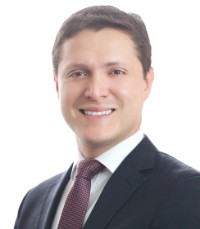International Arbitration 2025
USA – Florida
Trends and Developments
Introduction
This short commentary reviews recent cases and trends on Florida’s arbitration law. Florida state law contemplates two arbitration statutes:
- the Revised Florida Arbitration Code (RFAC), Sections 682.01 to 682.25, Fla. Stat., which governs domestic arbitration and is based on the Revised Uniform Arbitration Act; and
- the Florida International Commercial Arbitration Act (ICAA), Sections 684.0001 to 684.0049, Fla. Stat., which governs international arbitration and is based on the United Nations Commission on International Trade Law Model Law on International Commercial Arbitration (the “UNCITRAL Model Law”).
In addition to a modern statutory framework, in 2016 the Eleventh Judicial Circuit in Miami-Dade county established the Miami International Arbitration Court (MIAC), one of only three courts in the US specialising in international commercial arbitration.
These pro-arbitration statutory and judicial developments are supported by a host of institutional efforts and events from the International Chamber of Commerce (ICC), the Miami International Arbitration Society (MIAS), the International Bar Association (IBA), the Chartered Institute of Arbitrators (CIArb), the American Arbitration Association’s International Centre for Dispute Resolution (ICDR), and the robust domestic and international arbitration programmes offered by the University of Miami School of Law and Florida International University College of Law, to name a few. These developments continue to contribute to a mature international arbitration framework in Florida and to the high-quality decisions coming from the Eleventh Circuit, especially since the establishment of MIAC.
The following overview of recent decisions identifies some significant trends, particularly towards greater clarity and predictability.
Trends and Developments: Recent Decisions
Section 10 of the FAA provides the standards for review of international arbitral awards issued in the United States, not the New York Convention
In Corporación AIC, SA v Hidroeléctrica Santa Rita S.A., 66 F.4th 876 (11th Cir. 2023), the Eleventh Circuit (en banc) held that the grounds set forth in Section 10 of the FAA govern vacatur of international arbitral awards issued in the United States, not the grounds enumerated in Article V of the New York Convention on the Recognition and Enforcement of Foreign Arbitral Awards (the “New York Convention”). The case expressly overruled Industrial Risk Insurers v M.A.N. Gutehoffnungshutte GmbH, 141 F.3d 1434 (11th Cir. 1998), and resolved a long-standing circuit split on the applicable standards governing vacatur of domestic international arbitral awards.
In the 1998 case Industrial Risk, the Eleventh Circuit had held that international arbitral awards issued in the United States were only reviewable under the grounds for refusal of recognition and enforcement under Article V of the New York Convention, not the grounds for vacatur under Section 10 of the FAA. Relying on Industrial Risk, the district court in Hidroeléctrica Santa Rita refused to hear a motion to vacate the award alleging that the tribunal had “exceeded its powers” because this is not an express ground for vacatur found in the New York Convention (Hidroeléctrica at 881). A panel of the Eleventh Circuit concluded that it was bound by Industrial Risk and affirmed the district court but opined that the precedent and its progeny were wrongly decided. The Eleventh Circuit vacated the panel opinion and ordered rehearing en banc.
On en banc rehearing, the Eleventh Circuit distinguished between national courts’ vacatur review (primary jurisdiction) and review for the purpose of recognition and enforcement of foreign awards (secondary jurisdiction) and held that the New York Convention only applies to the latter (Hidroeléctrica at 883). The Court unanimously overruled Industrial Risk and its progeny Inversiones y Procesadora Tropical INPROTSA, S.A. v Del Monte Int’l GmbH, 921 F.3d 1291 (11th Cir. 2019), and clarified that international arbitral awards issued in the United States shall be governed under Chapter 1 of the FAA (“Industrial Risk and Inversiones are wrong, and clearly so”) (Hidroeléctrica at 889). With this important precedent, the Eleventh Circuit joins the Second, Third, Fifth and Seventh Circuits in applying Section 10 of the FAA to review arbitral awards issued in the United States, and not the New York Convention (“This is how the Second, Third, Fifth, and Seventh Circuits have interpreted the Convention”) (Hidroeléctrica at 886).
While some may criticise Hidroeléctrica Santa Rita for possibly eliminating an advantage to international arbitrations seated in Florida – namely, that arbitral awards were harder to vacate under Industrial Risk – the new precedent aligns the Eleventh Circuit with other important circuits in the United States, which brings greater predictability to international arbitral awards issued in Florida. In the authors’ view, this is a positive development, although one that should not be overstated since the factual scenarios that would lead to annulments under the New York Convention should not be fundamentally distinct from those under Section 10 of the FAA. Evidence of this is that the award in Hidroeléctrica Santa Rita was still upheld under the supposedly broader grounds under Section 10 of the FAA. See Hidroeléctrica Santa Rita S.A. v Corporación AIC, SA, 684 F. Supp. 3d 1277, 1284 (S.D. Fla. 2023), aff’d sub nom. Hidroeléctrica Santa Rita S.A. v Corporación AIC, SA, 119 F.4th 920 (11th Cir. 2024) (“because the Court has found no grounds upon which to refuse to recognize or enforce the arbitration award, and no grounds on which to vacate the award, the Court must confirm the award”).
Arbitration agreements may be enforced against non-signatory third parties
In Various Insurers v Gen. Elec. Int’l, Inc., 131 F.4th 1273 (11th Cir. 2025), the Eleventh Circuit held that various insurers were bound to arbitrate disputes as subrogees of the signatory party. As the US Supreme Court noted in Arthur Andersen LLP v Carlisle, 556 U.S. 624, 631 (2009), arbitration agreements may be enforced “by or against” non-signatories through various common law theories. In Various Insurers, the Eleventh Circuit demonstrated the application of such a theory in the case of third-party beneficiary insurers.
The case arose out of a catastrophic turbine failure at an Algerian power plant. The parent company (SNC) of the owner of the plant (SKH) had entered into a services contract with GE International providing for arbitration. After compensating SKH for certain losses, various insurers “stood in SKH’s shoes” and sued various GE entities in the United States. GE moved to compel arbitration, arguing that even though SKH was not a signatory, it was a third-party beneficiary of the services contract, and thus its insurers were bound by the arbitration clause via subrogation. (Various Insurers at 1275–6.)
The district court compelled arbitration and the Eleventh Circuit affirmed. The Court stated (at 1277) that parties to a contract may create rights in favour of a third party “by manifesting an intention to do so”. When that manifestation is apparent, the third-party beneficiary can be compelled to arbitrate on the demand of a signatory to the contract if that contract contains an arbitration clause. In Various Insurers, the applicable test for ascertaining “third-party beneficiary status is whether the contract reflects the express or implied intention of the parties to benefit the third party”.
Ultimately, the Court held (at 1279) that SKH was a third-party beneficiary of the services contract entered into by its parent SNC because of the “repeated references and rights afforded to SKH”, which “demonstrate the parties’ intent that the Services Contract’s performance would benefit SKH” and that in some instances “SKH would enjoy the right to unilaterally direct those benefits or exercise contractual rights”. Therefore, because the insurers stepped into SKH’s shoes through subrogation, they were bound by the same arbitration obligation as SKH itself.
Parties may waive their right to arbitrate by failing to comply with arbitration obligations
In Merritt Island Woodwerx, LLC v Space Coast Credit Union, 137 F.4th 1268 (11th Cir. 2025), the Eleventh Circuit clarified that a party’s failure to comply with institutional rules may amount to a waiver of the right to arbitrate. The case stems from a master services agreement (MSA) that included an arbitration clause selecting the American Arbitration Association (AAA) as the administering institution and providing a fallback provision allowing the parties to choose a forum if the AAA was unavailable and no substitute institution was agreed upon. On 27 March 2023, Woodwerx filed a claim with the AAA alleging that Space Coast wrongfully charged fees under the MSA. The AAA declined to administer the case due to Space Coast’s failure to submit its consumer dispute resolution plan and pay the required fees. On 7 June 2023, Woodwerx filed a putative class action against Space Coast alleging the same improper fees. Two days later, Space Coast filed its consumer dispute resolution plan with the AAA and paid the fees. On 24 July 2023, the AAA approved Space Coast’s plan and announced it was prepared to administer the consumer-related disputes, and Space Coast moved to compel arbitration in the putative class action.
The district court denied the motion to compel, concluding that “Space Coast had failed to perform its contractual obligations under the arbitration agreement”, and therefore “waived its contractual right to arbitrate” (Merritt at 1272). The Eleventh Circuit rejected all four of Space Coast’s arguments and affirmed the district court’s order. First, the Court held (at 1273) that a federal court qualifies as a substitute-forum under the MSA, rejecting Space Coast’s argument that the clause was limited to arbitration forums based on its heading. (“The heading doesn’t limit the clause’s scope when its text is clear.”) Second, the Court held (at 1274) that Space Coast effectively waived its right to arbitrate by acting inconsistently with that right. (“Space Coast was therefore in default under Section 3 of the FAA because it acted inconsistently with its arbitration right by not trying to remedy the barrier to arbitration that it had caused.”) Third, the Court rejected (at 1275) Space Coast’s defence that failure to initiate arbitration excused non-compliance with its obligations because doing so would have been futile (“failure to request arbitration doesn’t matter given the evidence of futility in the form of the AAA’s declination letter to Woodwerx”). Lastly, the Court denied (at 1276) Space Coast’s request for an order compelling arbitration under Section 4 of the FAA due to its failure to act consistently with the agreement to arbitrate (“post-filing conduct cannot cure the prior noncompliance”).
In Woodwerx, the Eleventh Circuit sent a powerful message that courts will take compliance with procedural requirements of arbitral institutions seriously. Having acted contrary to the agreement to arbitrate, Woodwerx later engaged in what the Court perceived as “gamesmanship”, which it would not tolerate. This case also aligns the Eleventh Circuit with a larger trend to place arbitration agreements on “equal footing with all other contracts” (Buckeye Check Cashing, Inc. v Cardegna, 546 U.S. 440, 443 (2006)), and federal precedent that “waiver does not generally ask about prejudice” (Morgan v. Sundance, Inc., 596 U.S. 411, 417 (2022)).
FAA’s three-month deadline for moving to vacate final arbitration award is subject to equitable tolling in “exceptional circumstances”
As a matter of first impression, in NuVasive, Inc. v Absolute Med., LLC, 71 F.4th 861 (11th Cir. 2023), the Eleventh Circuit held that the FAA’s three-month deadline for moving to vacate final arbitration awards is subject to equitable tolling. Finding the reasoning of other sister circuits “thorough and persuasive”, particularly the Ninth Circuit case Move, Inc. v Citigroup Glob. Markets, Inc., 840 F.3d 1152 (9th Cir. 2016), the Eleventh Circuit held that “the availability of equitable tolling does not contravene the FAA’s text, structure, or purpose” (NuVasive, 71 F.4th at 874).
The facts of this case were, however, “exceptional”. NuVasive, a medical device manufacturer, sued Absolute Medical after the latter disclaimed the parties’ exclusive distribution agreement and used former NuVasive salespeople to distribute products for a competitor. The district court compelled arbitration of NuVasive’s breach of contract claims, which led to an award finding that Absolute Medical had breached the distribution agreement but denying NuVasive’s claims for lost profits (NuVasive at 866). Back in court, during post-arbitration discovery, NuVasive obtained text messages showing that Absolute Medical’s principal had coached a witness via text messages during their remote testimony before the panel. NuVasive then moved to vacate the award under Section 10(a)(1) of the FAA, arguing it was procured by fraud, and Absolute Medical objected on the basis that NuVasive filed the motion to vacate after the statutory three-month deadline. The district court tolled the deadline and ultimately vacated the arbitral award.
On appeal, the Eleventh Circuit affirmed the district court and agreed with other sister circuits in finding that equitable tolling is an “extraordinary remedy” available in “extraordinary circumstances” (NuVasive at 871). The remedy is “appropriate when a movant untimely files because of extraordinary circumstances that are both beyond his control and unavoidable even with diligence”, which the Court explains as “reasonable diligence” (at 875–6). Here, the Court found (at 876) that Absolute Medical’s “cover-up” constituted extraordinary circumstances, and that NuVasive “could not have known about the text messages” at the time they were sent and “acted quickly once it learned about the text messages”.
While the decision obviously increases the vacatur window, it would be a mistake to see it as an anti-arbitration ruling. It is of course eminently sensible to allow parties to seek redress for fraudulent behaviour even after the three-month statutory period has lapsed.
Delegation of gateway issues of arbitrability
An issue that is often baffling to non-US practitioners is that, unlike most modern arbitration statutes and the UNCITRAL Model Law, the FAA does not contain a statutory provision corresponding to the principle of competence-competence. Thus, unlike most legal systems in the world, in the United States courts will ordinarily decide the validity of the parties’ agreement to arbitrate and the so-called “gateway” or “threshold” issues of arbitrability, which include both objective and subjective arbitrability. However, contracting parties are permitted to delegate those gateway issues from the courts to the arbitrators, provided they do so “clearly and unmistakably”. See, eg, First Options of Chicago, Inc. v Kaplan, 514 U.S. 938, 944 (1995) (“Courts should not assume that the parties agreed to arbitrate arbitrability unless there is ‘clea[r] and unmistakabl[e]’ evidence that they did so”). The selection of institutional rules that include provisions corresponding to the principle of competence-competence is often regarded as “clear and unmistakable evidence” of the parties’ intent to delegate the gateway issues of arbitrability from the courts to the arbitrators. See, eg, Terminix Intern. Co., LP v Palmer Ranch Ltd. P’ship, 432 F.3d 1327, 1332 (11th Cir. 2005) (“[b]y incorporating the AAA Rules, including Rule 8, into their agreement, the parties clearly and unmistakably agreed that the arbitrator should decide whether the arbitration clause is valid”).
The Eleventh Circuit revisited those issues in Bamberger Rosenheim, Ltd., (Israel) v OA Dev., Inc., (United States), 862 F.3d 1284 (11th Cir. 2017). In Bamberger, an Israeli company (Profimex) entered into a solicitation agreement with a Georgia company (OAD) to assist in sourcing and financing US real estate investments. The agreement included an arbitration clause that incorporated the ICC Rules of Arbitration and provided that any such arbitration “shall take place in Tel Aviv, Israel, in the event the dispute is submitted by OAD, and in Atlanta, Georgia, in the event the dispute is submitted by Profimex” (Bamberger at 1286). Pursuant to this agreement to arbitrate, Profimex commenced arbitration in Atlanta for breach of contract and OAD counterclaimed for defamation in the same arbitration. Profimex objected to the counterclaims in Atlanta, arguing that a dispute submitted by OAD must be arbitrated in Tel Aviv, in accordance with the arbitration clause. The arbitrator determined that the venue for the defamation counterclaim was proper in Atlanta because the “dispute” had been submitted by Profimex, and ultimately found Profimex liable on OAD’s defamation counterclaim. Profimex filed a petition to vacate the arbitrator’s defamation award in federal district court, OAD filed a cross-petition to confirm the award, and the district court held in OAD’s favour and confirmed the award.
On appeal, the Eleventh Circuit noted that the issue was “whether this Court must defer to the arbitrator’s venue determination” (Bamberger at 1287). The Eleventh Circuit noted that “[o]n the one hand, courts presume that the parties intend courts, not arbitrators, to decide what we have called disputes about ‘arbitrability’”, which include “questions such as ‘whether the parties are bound by a given arbitration clause,’ or ‘whether an arbitration clause in a concededly binding contract applies to a particular type of controversy’” (at 1288) (quoting Howsam v Dean Witter Reynolds, Inc., 537 U.S. 79, 84 (2002)). However, the Court continued, “[o]n the other hand, courts presume that the parties intend arbitrators, not courts, to decide disputes about the meaning and application of particular procedural preconditions for the use of arbitration”. In short, procedural questions “are generally for the arbitrators themselves to resolve” (Bamberger at 1288, quoting Klay v United Healthgroup, Inc., 376 F.3d 1092, 1109 (11th Cir. 2004)). Therefore, the Eleventh Circuit held, consistent with the First, Second, Fourth and Tenth Circuits, that “disputes over the interpretation of forum selection clauses in arbitration agreements raise presumptively arbitrable procedural questions” and that “[t]he arbitrator’s construction holds, however good, bad, or ugly” (Bamberger at 1288).
The decision in Bamberger underscores the Eleventh Circuit’s strong support for international commercial arbitration and articulates a clear alignment with other federal circuits in enforcing delegation clauses in cross-border contracts.
Not every non-disclosure leads to vacatur
In Grupo Unidos por el Canal, S.A. v Autoridad del Canal de Panama, 78 F.4th 1252 (11th Cir. 2023), cert. denied, 144 S. Ct. 1096 (2024), the Eleventh Circuit addressed the standards for arbitrator disclosures and reinforced the higher standards required for vacatur or non-confirmation of awards based on prior undisclosed relationships.
In this case, Grupo Unidos por el Canal, a consortium of European companies, was awarded a multibillion-dollar contract by Autoridad del Canal de Panamá to expand the Panama Canal. Completion of the project was delayed by over twenty months, which led to a series of disputes including an ICC arbitration seated in Miami before a prominent and experienced tribunal comprised of Robert Gaitskell, Claus von Wobeser and Pierre-Yves Gunter. On 21 September 2020, the tribunal issued a USD265 million partial award in favour of Autoridad de Canal. (Grupo Unidos at 1258–9.)
Nearly a month after the partial award, Grupo Unidos requested four rounds of additional disclosures from each of the arbitrators, including for “any facts or circumstances that may affect [the arbitrators’] independence in the eyes of any of the Parties or that could give rise to reasonable doubts as to their impartiality” (at 1259). The arbitrators disclosed that they had served on panels in unrelated arbitrations involving either opposing counsel or fellow arbitrators from this case. Prior to the issuance of the final award, Grupo Unidos challenged the arbitrators before the ICC’s International Court of Arbitration (ICA). While the ICA observed that the arbitrators should have been more thorough in their disclosures, it found that “none of these facts led it to question the arbitrators’ independence or impartiality” (at 1260). Grupo Unidos then sought to vacate the partial award and the final award in the Southern District of Florida, which denied the motions and confirmed both awards.
On appeal, the Eleventh Circuit affirmed (at 1267) the district court’s confirmation of the arbitral awards. While the Court agreed that the arbitrators ideally should have disclosed more information and that “arbitrators should err on the side of greater, not lesser, disclosure” (at 1262), the Eleventh Circuit found that there was no indication that the arbitrators were biased, and that Grupo Unidos failed to show how the familiarity among the arbitrators compromised their impartiality (“familiarity ‘does not indicate bias’”) (at 1264). Additionally, the Court noted that to rule for Grupo Unidos it “would need to hold, in essence, that mere indications of professional familiarity are reasonably indicative of possible bias” (at 1262), which it would not do, and concluded that “[i]t is little wonder, and of little concern, that elite members of the small international arbitration community cross paths in their work” (at 1264).
While arbitrators can always endeavour to provide more fulsome disclosures, in this decision the Eleventh Circuit recognised that not every non-disclosure will lead to vacatur.
Conclusions
As these recent developments show, the clear trend for Florida arbitration is towards greater clarity and predictability. The decisions discussed tackle some of the most difficult issues facing international arbitration today and show a level of maturity that ought not be understated. The profound understanding demonstrated by Florida courts and the Eleventh Circuit is second to none in the United States and shows that international arbitration is on solid ground in Florida.
King & Spalding LLP
Southeast Financial Center
200 S Biscayne Boulevard
Suite 4700
Miami FL 33131
USA
+1 305 462 6000
+1 305 462 6100
HBurnett@kslaw.com www.kslaw.com




